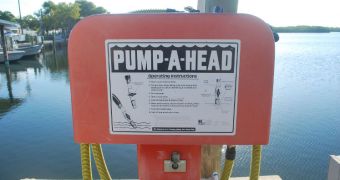Officials at the US National Oceanic and Atmospheric Administration (NOAA) announce that a new rule taking effect on December 27 will prevent ships traveling through the Florida Keys National Marine Sanctuary from discharging sewage into the waters.
The legislation also forbids leaving marine sanitation devices aboard ships and vessels of all sizes unsecured. In other words, preventing leaks is the property of boat owners. Failure to comply with these rules will be punished.
But sticking by the new regulations is not difficult at all. There are numerous private, local, state and federal locations where boat owners can have their sewage pumped out for a minimal fee.
NOAA also says that the recommendations the US Coast Guard (USCG) has in place for securing marine sanitation devices are a good starting place for doing so. However, boat owners are encouraged to come up with their own methods as well, provided they are just as efficient.
“This rule is another important step in restoring the water quality of the Florida Keys,” explains the superintendent of the Florida Keys sanctuary, Sean Morton.
“Combined with other strategies such as increased pump-out facility availability and ongoing progress in advanced wastewater treatment, this new rule brings us closer to reversing the trends of declining water quality associated with human sources of pollution,” he adds.
What the new law does is it extends protection from state to federal waters as well. Since the US Environmental Protection Agency (EPA) declared the Keys a No Discharge Zone in 2002, state waters have been protected.
Now, NOAA has extended that protection to federal waters that are a part of the sanctuary as well.
“Current marine sanitation treatment devices do not kill all viruses found in wastewater, nor do they remove nutrients such as phosphorous and nitrogen,” NOAA says in a press release.
“This new rule prohibiting discharges and requiring the devices to be secured will help prevent these pollutants from entering the sanctuary,” the agency adds.
“Excessive amounts of nutrients can harm coral reef ecosystems by degrading water quality and stimulating the rapid growth of aquatic plants and algae, which in turn smother and kill live coral,” officials with NOAA add.

 14 DAY TRIAL //
14 DAY TRIAL //